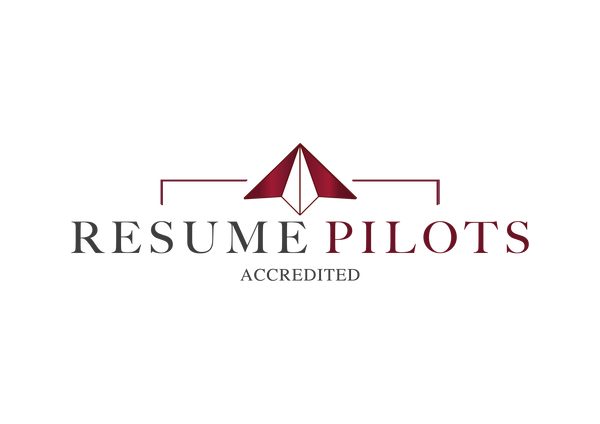
10 Words to Remove from Resume to Instantly Increase Credibility
Remove These Words to Keep Your Resume Writing Sharp and Concise [+ Free Negative Keyword Detector]
It’s easy for writer's block to kick in when putting together a document as personal and important as your resume.
A key point to remember is that effective business writing is clear, to the point, and results oriented.
As Mark Twain once wrote in a letter, “I notice that you use plain, simple language, short words, and brief sentences.
"That is the way to write English — it is the modern way and the best way. Stick to it; and don’t let the fluff and flowers and verbosity creep in.”
In this article, we explain which words to remove and provide a free tool you can use to screen your resume for negative keywords.
10 Words to Remove From Your Resume
By removing overused and flowery words such as the following from your resume, you’ll craft a stronger document that accurately highlights your skills and accomplishments.
1) “Responsible For”
When you start a bullet point with "responsible for," you inevitably end up sounding quite passive — as if you went to work solely to fulfill your responsibilities and call it a day.
Instead of focusing on your day-to-day responsibilities, start your bullet points with engaging action verbs and make their content achievement-driven.
2) “Objective”
Listing objectives on your resume is a thing of the past.
What is your objective when you submit your resume for a job posting?
Presumably, it's to land an interview for that role.
Enough said!
If you still have an objective statement, get rid of it. There are much better uses for the limited space you have to work with.
3) “I” / “Me” / “We” / “Our”
Your entire resume should be written in the third person.
In addition to being resume writing convention, eliminating first-person language will allow you to cut out excess words.
4) “A” & “The”
You can also eliminate filler words such as "a" and "the" from your bullet points, allowing you to squeeze more information and relevant keywords onto each line.
Before: "Led the research team in completing a study on the most effective hiring techniques."
After: "Led research team in completing study on most effective hiring techniques."
5) “References”
You don't need to list references on your resume or say that "references are available upon request."
In the early stages of the application process, recruiters aren't likely to reach out to your references.
They also assume you'll be able to provide references when requested.
6) “Helped” / “Assisted”
Take ownership!
Even if you weren't the lead on a project, highlight elements that you had direct responsibility for.
While it can be a good idea to share credit in the workplace, your resume isn’t the place to be overly modest and humble.
7) “Successfully” / “Effectively” (or any other adverb)
Adverbs such as "successfully" or "effectively" can sound overly exaggerated.
Let's consider the following example.
Before: "Efficiently completed month-end financial reporting and analysis."
After: "Reduced time to complete month-end financial reporting and analysis by 20% by building new Excel models."
By eliminating the adverb and explaining exactly how you completed the reporting and analysis "efficiently" instead, you end up with a more impactful bullet point.
8) “Hard-Working” / “Goal-Oriented” / “Driven” / “Motivated”
Instead of simply telling recruiters that you are "driven" and "accomplished," provide concrete examples that demonstrate these characteristics in the context of your work experience.
By "showing" instead of "telling," you'll make your statements sound less generic and more believable.
When you use adjectives such as “hard-working” and “effective” to describe yourself, they come off as empty industry buzzwords that do little to differentiate you from other similar applicants.
Mark Twain continued to explain:
“When you catch an adjective, kill it. No, I don't mean utterly, but kill most of them ― then the rest will be valuable. They weaken when they are close together. They give strength when they are wide apart.
“An adjective habit, or a wordy, diffuse, flowery habit, once fastened upon a person, is as hard to get rid of as any other vice.”
Flowery, vague writing is one of the most common pitfalls we see on resumes.
Pay special attention to this point.
Let your experience speak for itself instead of describing yourself with adjectives that are better suited for a high school report card.
9) “Problem-Solver” / “Effective Communicator”
You'll often see soft skills such as "strong problem-solving ability" and "effective communication skills" listed on job descriptions.
Again, it's not enough to simply list these skills on your resume!
Recruiters want to see clear-cut evidence of your problem-solving ability and communication skills.
What are examples of problems you helped solve? Were you invited to speak on any conference panels or represent the company in the news? Did you give any internal presentations?
10) “Worked on/in”
Instead of using generic, overused phrases, intentionally select powerful verbs to start each of your bullet points.
There are so many action verbs to choose from!
Negative Resume Keyword Detector
In Summary
When preparing your resume, let your experience speak for itself and pay attention to the minor details.
Your margins and spacing should be absolutely consistent.
You should also avoid fancy formatting and other gimmicks.
By sticking to tried and proven executive resume writing conventions, you'll set yourself up for success.
To find out more, visit our website www.resumepilots.com. If you have any further questions, you can either book a consultation call with one of our team, or get in touch via email on team@resumepilots.com

